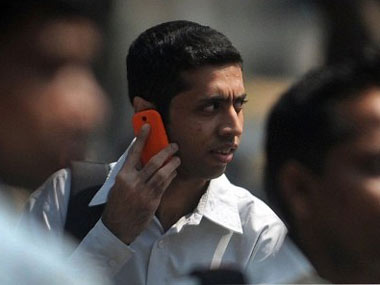Looks like everyone from companies to consumers have reason to be disgruntled about the Telecom Regulatory Authority of India’s (TRAI) recommendations on the highly-anticipated auction for 2G spectrum after the Supreme Court ordered the cancellation of all telecom permits awarded in a scandal-tainted 2008 sale and the redistribution of those permits through an open bidding process.
Here are the key reasons for the discontent:
Much higher-than-expected reserve price
Companies will have to pay a minimum of Rs 3,622.18 crore for every megahertz (MHz) in the 1,800 MHz band, whichis around 10 times more than what companies such as Unitech Wireless, Swan Telecom and Shyam Telecom had paid for at least 4.4 MHz of all-India spectrum in 2008.
[caption id=“attachment_286366” align=“alignleft” width=“380” caption=“Looks like everyone from companies to consumers have reason to be disgruntled about the Telecom Regulatory Authority of India’s recommendationsAFP”]  [/caption]
A pan-India spectrum in the 1,800 MHz band will now cost Rs 18,000 crore. This is around five times the base price of Rs 3,500 crore for 3G spectrum auction.
For spectrum in the 800 MHz and 900 MHz bands, the regulator suggested a base price of Rs 7,244 crore per MHz, a proposal, which if accepted, would hit Sistema’s Indian unit, which is looking to bid in the 800 MHz band.
The proposals could further hit foreign investor sentiment in India, already hit by policy flip-flops and controversial tax proposals.
This year’s auction may not allow every telco to get a licence
While nine mobile phone companies lost their permits based on the Supreme Court orders, only one company might get back its licence in the auction this year since only 5 MHz is proposed to be auctioned this financial year. According to industry experts, five megahertz is the minimum required to provide mobile services.
Impact Shorts
More ShortsTRAI chairman J S Sarma said that only if incumbents (existing telecom companies) in a region managed to grab 50 percent of the frequencies available in the upcoming auction, then a company that lost its permit or another new entrant will be awarded 5 MHz if it emerges as the second-highest bidder. “In such a case, the total amount of 2G airwaves sold in that region will be 7.5 MHz,” Sarma said, according to The Economic Times.
Vodafone, Bharti and Idea will have to shell out crores for ‘refarming’
Among its recommendations, TRAI has recommended “refarming” spectrum in the 900 MHZ band, considered the most efficient for 2G services, immediately.
In the recent past, GSM operators had jointly opposed ’equal distribution’ of the 900 Mhz spectrum band - a very strong demand from the dual-tech and CDMA lobby - because it fundamentally undermines spectrum allocated in the past.
If TRAI’s proposal to ‘refarm’ the 900 MHz band is accepted, Vodafone, Bharti and Idea will have to shell out a cumulative Rs 95,000 crore to buy back the spectrum they already own, according to The Economic Times.
No more one paise per second tariffs for consumers?
With such high reserve prices for auctions, companies will no longer be able to offer cheap tariffs to consumers.
As Deloitte Haskins & Sells Partner Hemant Joshi told Business Standard, “The Indian telecom sector is reeling under hyper competition due to overcapacity and is under a cash strain due to high prices paid for 3G spectrum and the capital-intensive nature of the industry. If the guidelines are accepted by the government in totality, the business models of the incumbents and new operators would have to be redrawn, as operators would have to pay significantly higher for spectrum, which may ultimately lead to an upward revision in tariffs.”
And, in a rare show of unity, the Cellular Operators Association of India - the GSM industry body - and the Association of Unified Service Providers of India - the association of CDMA and dual-technology players - also said in a joint statement that Trai’s recommendations had the “potential to derail a sector that is a significant contributor to the national economy”.
Finally, it must be noted thatTRAI’s recommendations are not binding on the government, which has the final say on the auction rules.


)

)
)
)
)
)
)
)
)



